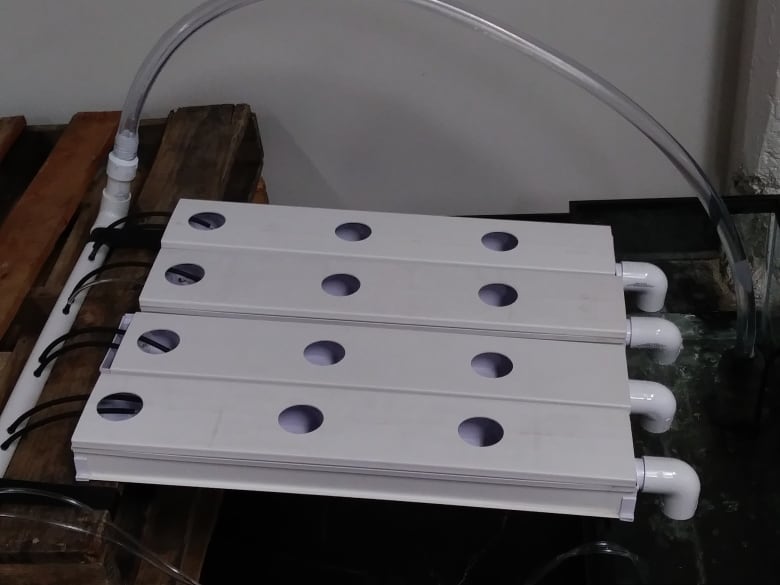P.E.I.-based company wins $25K to develop hull coating made of fish waste
[ad_1]
A company based out of Canoe Cove, P.E.I., just won some funding to continue development of a protective coating for boats made from fish waste.
The company, Kavacha — which means armour in Sanskrit — is one of 14 that won $25,000 through the Ocean Startup Challenge.
The challenge launched in January and asked entrepreneurs across Canada and the world to provide creative solutions to problems in the fishing and aquaculture industries.
“Antifouling has been a long-standing issue in marine systems,” says Kshitij C Jha, founder of Kavacha and president of its parent company Biena Tech.
Antifouling is the process of protecting a ship’s hull from marine growth, such as barnacles, by applying a protective paint layer.

Jha said the aim of the company is to improve antifouling solutions.
“Our approach is to tone down on the biocides that are currently being used, zinc oxides and cupric oxides.”
Jha said some copper-based antifouling paints have been banned in some jurisdictions due to leaching into waterways.
The whole team is super excited.— Kshitij C Jha, Kavacha
“We want to use something that is abundant in Atlantic Canada, which is fisheries,” he said.
“From fisheries you extract a natural material called chitosan, which has been known for decades to have antibacterial and antifouling properties.”
He said that chitosan is extracted from waste left behind after the meat is removed from a fish.
Jha said the problem with chitosan is being able to extract it at a high volume economically — but that is happening right now in Atlantic Canada in research groups.
“We wish to provide them with a high volume use where they can use it in protective coating applications.”

Typically, Jha said, products can make it to market in 12 to 14 months — but he is expecting it to take a little longer due to COVID-19.
Jha said the company plans to use the money it won for further development of the product.
“The whole team is super excited.”
Another challenge coming
The Ocean Startup Challenge planned to select 10 companies for the cash incentive — but Donald Grant executive director of Ocean Startup Project which issued the challenge, said there were too many quality projects to pick from.
“We got 150 applications from across Canada and around the world,” he said. “We just couldn’t narrow it down to the 10 because there were so many great ideas out there.”
Grant said the project is part of a 24-month strategy to try to develop and grow ocean-based startups and another round of funding is expected to be given out next year.
“We will do one more next year and there will be larger dollars available for the companies,” he said, adding there will be between $1 million and $1.5 million up for grabs.
Grant said he is excited about Kavacha and its goal to improve antifouling in a sustainable way.
Jha said a barn at the farm he is staying at in Canoe Cove may soon be turned into a testing lab — and being so close to the water makes the whole process efficient.
“It’s a wonderful place to be,” he said.
More from CBC P.E.I.
[ad_2]
SOURCE NEWS
